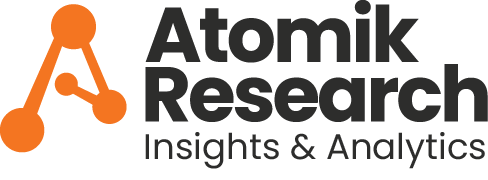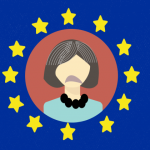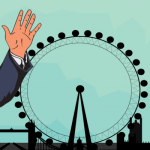To find out we asked our panel to name bands that they thought were World Cup Sponsors in both prompted and unprompted situations. For the unprompted recall, we asked 2,000 adults to name the brand that comes to mind first when thinking of World Cup sponsors. No prompts or answers were given and respondents had to type their own answer.
Nike was the second top most recalled brand for being an official World Cup sponsor behind Coca Cola according to the research. Although they weren’t one of the official Fifa World Cup sponsors or Fifa Partners, Nike did supply the shirts for ten countries which may explain the association, especially as the brand used the world cup as part of their main advertising strategy throughout the build up to the tournament.
Interestingly Nike, despite being unofficial sponsors, outdid Adidas in terms of recognition with Adidas coming only 4th in the public’s consciousness despite them an official sponsor and providing shirts for 12 of the 32 nations and four TV adverts in a global campaign that has been two years in the making. Adidas were dealt another blow by Nike after the final featured teams both sponsored by the brand.
Overall, just 36% of UK adults managed to name an official Fifa Partner or Fifa World Cup sponsor, with the majority stating another brand, or not being sure of any at all. This compares to 61% of UK adults who watched the Fifa World Cup which suggests that just under half of those that watched had no recollection of the tournament sponsors.
When it came to prompted recall test, Coca Cola still reigned supreme, with McDonald’s, Budweiser, Visa, and Adidas making up the rest of the top 5 brands recognized for their sponsorship activity. Mastercard, Nike and Pepsi also made it onto the top 10 list despite not being officially tied to the event.
 Atomik Research asked consumers if they would be more likely to buy or use any brands after their World Cup sponsorship or marketing activity, regardless of whether they were official sponsors or not.
Atomik Research asked consumers if they would be more likely to buy or use any brands after their World Cup sponsorship or marketing activity, regardless of whether they were official sponsors or not.
The research revealed the vast majority (65%) said they would not be any more likely to buy or use brands following their marketing activity around the global event. However, 35% were more likely to use at least one brand as following their tournament marketing. The brand winners here, Puma, M&S and Coca Cola, only managed to entice less than one in ten people though, with just 7% saying they would be more likely to purchase their goods as result of their World Cup marketing activity.
Interestingly, 30% of UK adults said they would actually be less likely to use at least one brand after seeing their World Cup sponsorship or marketing activity according to the research. When looking by brand, the percentages are fairly minimal, with 7% saying they would be less likely to use Alfrosa, 6% Alfa Bank, as well as 5% avoiding Adidas and Coral.
Atomik’s Project Manager, Alice Goody commented on the results. “Coca-Cola has emerged as the brand winner for its sponsorship activity around the Fifa World Cup, coming out top both for unprompted and prompted recall.
“Existing high levels of recognition clearly play a part in brand recall, as the official sponsors who were least likely to be linked to the event were Mengniu and Vivo, based in the Far East, as well as the regional sponsors of Alfrosa and Russian Railways.”
She continued: “While sponsors benefit from unrivalled exposure to a captive, global audience, whether this will have a positive impact on consumer behaviour remains to be seen; less than one in ten UK adults said they would be more likely to use Coca-Cola in the future – and this was the joint top score, along with Puma and M&S, which benefited from the Southgate waistcoat frenzy. Yet actions speak louder than words, and with the soft drinks brand being most closely associated with a sporting event that filled the nation with pride, Coca-Cola could be set for its own triumphant performance”







